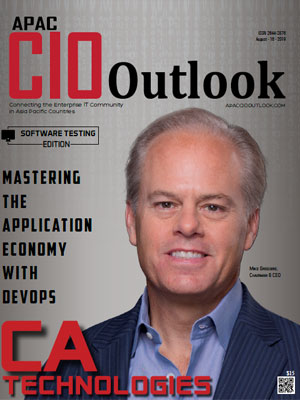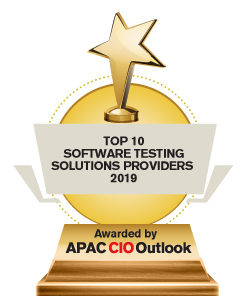Software testing and quality assurance have undergone a significant change from a gate-keeping quality approach to a more evolved, active, "fit-for-purpose" strategic role. The software development industry is experiencing substantial disruptions with the advent of Agile and DevOps development technologies, and it has lead to the evolution of new testing approaches. DevOps is a software testing approach that ensures seamless coordination between the silo-based departments of an organization to achieve the overall objective. In DevOps, the testing starts at the beginning of the development cycle. This development approach accelerates Continuous Integration and Continues Delivery. This enables testers to perform Continuous Testing and Continuous Monitoring to validate that the developers have built the right application. A better collaboration between DevOps and Agile would replace the specific test groups with nodal groups executing a dynamic quality analysis. DevOps and Agile would help deliver quicker and superior test outcomes for businesses at reduced costs.
Enterprises are leveraging cloud-based platforms like AWS in a big way, thanks to the latter’s attributes like scalability, flexibility, security, and cost-effectiveness. The software testing trends in 2019 will see the utilization of cloud-based testing tools such as Selenium, Robotium, etc. Testers and developers will continue to rely on cloud-based testing tools for quicker and better results. Machine learning has brought revolutionary changes in workflows and processes. Machine Learning can be utilized for test suite optimization, predictive analytics, log analytics, traceability, and defect analytics.
Big Data testing is crucial to ensure that the quality of data remains uncompromised. In Big Data testing, testers have to ensure that the terabytes of data are successfully processed using commodity cluster and other supportive components. This type of testing puts more focus on performance testing and functional testing. IoT testing is conducted to thoroughly check IoT technology-based devices that people have massively become dependent on. The essential components of a meticulously performed IoT testing process are usability testing, security testing, data integrity testing, performance testing, compatibility testing, reliability testing, and scalability testing. Performance engineering will reform performance testing in 2019. Rather than executing performance test scripts, the focus will be on analyzing how all the elements of the system work together.
Testing is no longer about performing tasks in a typical manner. The motive of test automation has changed. Testers will be testing both functional and non-functional testing with the help of automation tools. The test automation enables the testing team to focus their time and efforts on creating test cases rather than managing testing needs. Test automation helps to trace and manage all testing needs, the types of testing required along with the test coverage. The only way for QA professionals to stay indomitable is to master their skills that complement the testing trends that keep on updating with every passing year.
This edition of APAC CIOOutlook features companies that are at the forefront of offering software testing solutions. A distinguished panel and APAC CIOOutlook’s editorial board has assessed and shortlisted some of the most prominent organizations in the industry. We present to you – “Top 10 Software Testing Solution Providers – 2019”.





![CA Technologies [NASDAQ:CA] - Top Software Testing solution companies in APAC CA Technologies [NASDAQ:CA]](https://www.apacciooutlook.com/company_logos/txoqf222.jpg)





















